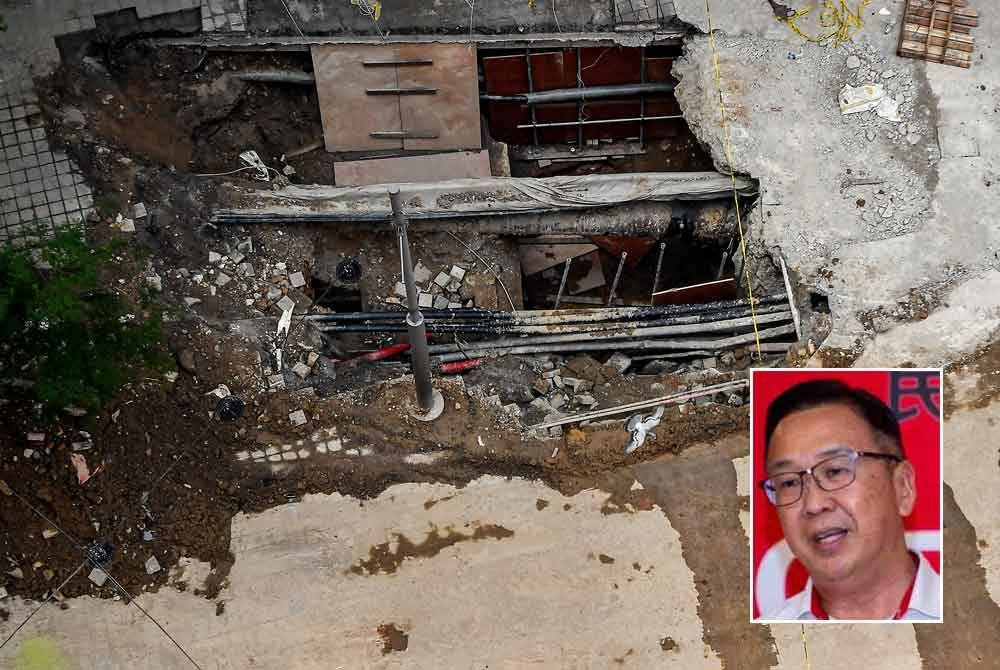Dominic urges immediate inspection of subsurface structures in KL
The rapid development over the past 100 years was feared to have caused specific changes to the topography and landscape of the capital city.

SHAH ALAM - Inspections in areas at risk of ground subsidence in Kuala Lumpur need to be done immediately following the recent sinkhole incident at Jalan Masjid India.
The rapid development over the past 100 years was feared to have caused specific changes to the topography and landscape of the capital city.
Gerakan president Datuk Dr Dominic Lau Hoe Chai suggested that the government considered using sonar or seismometers for mapping to assess the ground conditions in high-risk areas.
He said the Kuala Lumpur City Hall (DBKL) and all related agencies should not only focus on the condition of roads and surfaces in tourist spots but also ensure that all potholes in residential or street areas were repaired immediately to mitigate risks.
"Kuala Lumpur is known for natural disasters. Climate change is increasing and natural disasters like land subsidence, flash floods, landslides and mudflows continue to occur.
"The Masjid Jamek Light Rail Transit (LRT) station in the city centre was closed in 2020 due to flooding. DBKL needs to enhance prevention facilities to reduce the risk and damage caused by floods and strengthen soil stability.
"While it may not be possible to completely prevent land subsidence, at least it can be managed systematically.
"From urban construction to political arrangements, everything needs to be thoroughly reviewed to strengthen Kuala Lumpur’s position as our nation's capital," he said in a statement, today.
He added that the location of the sinkhole incident at Masjid India was at a river junction, which might have led to the subsurface becoming hollow due to erosion by groundwater.
Furthermore, Kuala Lumpur was originally a tin mining area and has now become a highly populated region.
In this regard, he said, sinkhole incidents were a tragedy and a warning that needed the government's attention.
"In the past week, at least three land subsidence incidents have occurred in Kuala Lumpur, raising concerns among local residents about the safety of structures.
"Residents living near subsidence-prone areas are very concerned about whether their land is safe or not. Because their anxieties are not clearly addressed, they naturally doubt the safety of their residential areas," he said.










